http://www.newcanaanmountedtroop.org

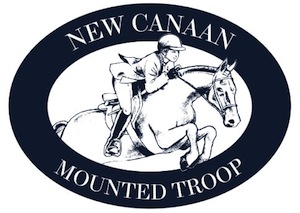
New Canaan Mounted Troop, Inc.
22 Carter Street
NEW CANAAN, CT 06840
Mailing Address:
22 Carter Street
NEW CANAAN, CT 06840
Phone: 203-966-0634
MAKE AN INQUIRY
View our WEBSITE
EIN: 06-0726610Founded: 1939
View our PHOTO GALLERY
Profile Last Updated December 3, 2025Public Charity
Click here to view listing(s) of the program horses we are seeking

The Guardian Seal of Transparency is awarded annually to recognize an organization's commitment to transparency and accountability by their willingness to make comprehensive data about their programs, horse care practices, and governance available for public scrutiny. The Guardian Seal of Transparency is NOT an endorsement.
Last Updated: May 31, 2025
New Canaan Mounted Troop, Inc. has not attained the Guardian designation for 2026.

MISSION & PROGRAMS
Mission:Founded in 1939 as a chapter of the Junior Cavalry of America, NCMT's mission is to build leadership, responsibility and confidence in youth through sound horsemanship and to enrich the lives of individuals with special needs through equine assisted activities. We provide a comprehensive, hands-on learning experience that emphasizes teamwork and follows a proprietary curriculum focused on horsemanship, riding, and equine care instruction. Additionally, our "Super Troopers" therapeutic riding and equine care program serves children and adults with special needs.
Our organization conducts Equine Assisted Services in accordance with the EQUUS Foundation Guidelines on Qualifications of Organizations Conducting Equine Assisted Services (EAS).
Our organization provides outreach and/or public education programs involving horses.
100% of our total programs and services are equine-related.
Our organization is directly responsible for the care and shelter of equines involved in our programs.
Our organization does not CURRENTLY use satellite, overflow, foster, and/or outreach facilities.
Please describe what steps your organization takes to ensure that:
1) all interactions between your equines and people are mutually beneficial and conducted in accordance with the Guidelines for Human-Equine Interactions stated below;
2) all equines in the care of our organization and/or equines that participate in the organization's program have access to clean drinking water at all times; nutritious food in sufficient quantity, including natural forage such as pasture grass and/or hay; appropriate veterinary, farrier, and dental care; shelter and protection from the weather; sufficient safe space to move around comfortably on a daily basis; and daily opportunity to freely interact and have contact with other equines:
New Canaan Mounted Troop (NCMT) exemplifies a model of equine care that places the comfort and dignity of its horses at the forefront of its mission. By adhering to best practices in human-equine interactions, NCMT ensures that each horse receives comprehensive care and respect, fostering a harmonious and healthy environment.
Central to NCMT’s philosophy is the provision of continuous access to clean water and nutritious food tailored to each horse’s individual needs. This approach includes individualized feeding plans, incorporating supplements as necessary, based on factors such as age, breed, condition, size, work level, and health issues. Such meticulous attention guarantees that horses receive sufficient nutrition and natural forage daily, as recommended by veterinary professionals.
Beyond nutrition, NCMT prioritizes the physical and social well-being of its equine partners. Horses are provided with safe shelter that offers protection from the elements, alongside ample space that allows for free movement and interaction with other horses. This setup not only caters to their physical comfort but also supports their social instincts, promoting mental well-being through regular companionship and engagement.
Regular health maintenance is a cornerstone of NCMT’s equine care regimen. Horses receive consistent veterinary check-ups, dental care, and farrier services to address and prevent health issues proactively. This comprehensive health care strategy ensures that each horse remains in optimal condition, capable of participating fully in the program’s activities.
To maintain the highest standards of care, the NCMT team convenes formally twice a month to discuss matters related to horse health, behavior, and overall well-being. These meetings facilitate the sharing of observations and the development of coordinated care strategies. Additionally, the team remains flexible, holding additional meetings as needed to address any arising concerns promptly.
Effective communication is further enhanced through the use of BarnManager, a specialized software program. This platform allows for seamless documentation and dissemination of information regarding each horse, ensuring that all team members are promptly alerted to any issues or updates. Such a system promotes transparency and swift action, reinforcing the organization’s commitment to exemplary equine care.
In essence, New Canaan Mounted Troop’s unwavering dedication to the comfort and dignity of its horses is evident in its holistic approach to equine management. Through individualized nutrition plans, provision of safe and social living conditions, regular health maintenance, and robust communication practices.
Equine Assisted Services (EAS) Overview:
Overview of our programs involved with providing EAS to individuals with special needs:
Super Troopers Program: NCMT uses its donated horses and ADA compliant facility to provide equine assisted therapeutic activities to individuals with special needs. As a PATH International (Professional Association of Therapeutic Horsemanship International) center member, it adheres to strict professional standards and policies for the program.
There are three EAS offerings:
Adaptive Riding - help participants reach physical, cognitive, behavioral and communication goals. Customized lesson plans incorporate activities on horseback to improve mobility, balance, posture and coordination while learning the fundamentals of riding skills.
Equine Care -unmounted adaptive activities to foster the human and horse connection and teach about barn safety, equine behaviors, nutrition, grooming and ground work. Acquired skills help enhance physical, cognitive and emotional development as students interact with their equine partners.
Horse Wisdom Project Workshop- an experiential educational program involving therapeutic unmounted horsemanship activities serving children and adults in our community at large. For each specific group, ie. parents or teens, the Horse Wisdom Project instructors creates a curriculum composed of unmounted exercises with the NCMT horses. Using an arena or paddock, and the Learning Center, these one time workshops will run from 2-3 hrs long depending on the group’s objectives. We are currently collaborating with the VOICES Center of Resilience for our Horse Wisdom Project.
In addition to the above programs in the fall of 2023, we implemented an Equine-Assisted Physical Therapy program in collaboration with STAR Inc. Lighting the Way. STAR employs a hippotherapist and utilizes our facility, horses, volunteers and instructors to work with their clients. We began as a pilot program with one student and anticipate growing this program in the spring of 2024.
The Super Troopers program operates year round.
Equine Assisted Services (EAS) and Providers:
Our organization provides the following Equine Assisted Services (EAS):
Adaptive/Therapeutic Riding
Adaptive/Therapeutic Unmounted Horsemanship
Occupational Therapy/Physical Therapy/Speech-Language Pathology
4: Total number of Equine Assisted Service Providers at New Canaan Mounted Troop
1 Caroleigh Evarts
FACILITY PARTICIPATION:
New Canaan Mounted Troop
RELATIONSHIP: Employee
SERVICES PROVIDED:
Adaptive/Therapeutic Riding
Adaptive/Therapeutic Unmounted Horsemanship
DEGREES, LICENSES AND/OR CERTIFICATIONS
Caroleigh Evarts is NCMT's therapeutic program director. She is a PATH certified instructor and brings a wealth of knowledge and experience to her role. She is well connected to the community and programs that serve individuals with disabilities.
2 Hannah Jones
FACILITY PARTICIPATION:
New Canaan Mounted Troop
RELATIONSHIP: Employee
SERVICES PROVIDED:
Adaptive/Therapeutic Riding
Adaptive/Therapeutic Unmounted Horsemanship
DEGREES, LICENSES AND/OR CERTIFICATIONS
Hannah Jones is a PATH Int. certified instructor and has been teaching Therapeutic/Adaptive Riding and Unmounted Groundwork with our Super Troopers program since she received her certification.
3 Laura Boehmer
FACILITY PARTICIPATION:
New Canaan Mounted Troop
RELATIONSHIP: Accompany Clients
SERVICES PROVIDED:
Occupational Therapy/Physical Therapy/Speech-Language Pathology
DEGREES, LICENSES AND/OR CERTIFICATIONS
Laura Boehmer is an AHCB Hippotherapy Certified Therapist.Her credentials are MPT, C/NDT and She is an experienced Physical Therapist employed by STAR, Inc. Lighting the Way.
4 Stacy Gendels
FACILITY PARTICIPATION:
New Canaan Mounted Troop
RELATIONSHIP: Independent Contractor
SERVICES PROVIDED:
Adaptive/Therapeutic Riding
Adaptive/Therapeutic Unmounted Horsemanship
DEGREES, LICENSES AND/OR CERTIFICATIONS
Stacy Gendels is a PATH certified instructor and has been teaching for over 5 years.
Outreach and/or Public Education:
Troopers Program: NCMT provides a youth development and educational horsemanship program based on accountability, responsibility, kindness and respect. The Troopers program operates seven days per week during the school year. Additionally, NCMT offers a youth summer camp program from mid June to August.
The Troopers program serves about 130 students (7-17 years old) during the academic year and an additional 50-55 children enroll in a summer program. 53% are from New Canaan, 17% from Darien, 7% from Wilton, 8% from Norwalk, 4% from Westport, 2% from Greenwich, 4% from Stamford and the balance from neighboring towns.
Approximately 10% of students from a low to moderate income population are eligible for scholarships.
All students are required to participate in a weekly Equine Care Day where they learn about barn safety and management skills, perform barn chores, help address the basic needs of the horses, and attend an equine care lecture. Weekly group riding lessons follow a curriculum based on the fundamentals of hunt seat equitation and the principles of sound horsemanship.
Community service, mentorship, and a leadership council are all core components of NCMT's overall curriculum. Troopers aged 14 or older can become trained and volunteer in NCMT's therapeutic "Super Troopers" program. Based on merit, Troopers are promoted through the ranks, heralding back to the historical founding of NCMT in 1939 as a chapter of the Junior Cavalry of America.
NCMT relies on donated horses and ponies to provide affordable and quality horsemanship programs, with the objective of "giving horses a second chance so kids can have a first."
NCMT depends on a combination of tuition fees, fundraising and grant award proceeds to support all of its activities. It provides scholarship funding to families who demonstrate financial need.
Multiple years of successful collaboration with the New Canaan Public School/Launch program to enroll students in the equine care program for 22 weeks during the school year.
Ongoing partnership with STAR-Lighting the Way in Norwalk to enroll eligible adults in our programs. Many participating low-income adults have attended the programs on scholarship for several years.
In 2017, a new partnership began with the Center for Discovery of Fairfield CT to provide a year around equine care program for children (ages 11-17) with mental health disorders.
NCMT and the New Canaan YMCA worked together to host the YMCA "Teen Scene" recreational program for teens and young adults with special needs at NCMT. Participants spent time in the barn learning about our horses with teenage Trooper buddies.
NCMT provides summer programs, for students at Horizons, New Canaan Country School and Horizons at Norwalk Community College, Horizon's provides enrichment programs for underserved youth.
NCMT will host New Canaan NewComers and Young Women's League for a day at the barn and equine care demonstration
NCMT and Gilford Public Schools have a relationship for students attending our programs.
Little Troopers - was launched in 2022 for children 4-7 years old to learn equine care at an age appropriate level.
Research/Medical Use of Equines:
Our organization has never made, and would not ever consider making, equines available for research studies or medical training that involves invasive procedures and/or that which may cause pain or suffering to the equine.
Religious Affiliation:
Our organization does not promote religious education, religious purposes, or a specific religious faith or use donations for religious education or religious purposes; require participants to be of a certain faith; require participation in religious, instruction, activities or services; or require participation in prayer, worship, religious instruction or other religious activities as a condition of receiving social or secular services offered.
Auction Donation:
Our organization has never allowed, or would not consider allowing, an equine to be sold, transferred, released, or otherwise placed into possession of any person or organization that would cause or allow the equine to be sold at auction for slaughter.
POLICIES: INTAKE, ASSESSMENT & TRAINING
Prior to a horse being accepted and/or arriving at the facility, the organization has the following policies in place:The owner of a potential equine is interviewed over the phone or in person prior to seeing the equine
The equine is evaluated at its place of residence
The owner completes an application/contract which constitutes the agreement between the owner and our organization when the equine is acquired from the equine's owner other than by seizure or by abandonment
The owner is financially responsible for the shipping of the equine to and from the organization
If health records are not available or are out-of-date, our veterinarian will administer appropriate vaccinations
A health certificate signed by a veterinarian and dated no more than seven days prior to arrival is provided to our organization either prior to or upon arrival of the equine attesting to the health status of the equine
Trial Period: Check all that apply:
Equines are on trial for up to 30 days
Equines are on trial up to 60 days
The trial period may be reduced based on the equine's progress
During the trial period, the organization accepts financial responsibility for the care of the equine, including board, feed, shoeing and any necessary veterinary care, up to a fixed amount agreed upon by the organization and the owner
The trial period may be terminated by either the organization or the owner for any reason
Equines are on trial for 60 or more days
During the trial period, the organization accepts total financial responsibility for the care of the equine, including board, feed, shoeing and any necessary veterinary care
During the trial period, the owner/donor is financially responsible for the care of the equine, including board, feed, shoeing and any necessary veterinary care
Upon intake, the organization has the following quarantine policy in place:
The equine is confined to a designated and separate area for isolation and quarantine at the facility for a prescribed period of time
The equine is confined to a designated and separate area for isolation and quarantine off-site for a prescribed period of time
The equine is not quarantined
The typical length of quarantine is: 10 to 20 days
Following arrival of the equine at the facility, the following is performed:
Physical examination to include temperature, pulse and respiration by a veterinarian upon arrival
Physical examination to include temperature, pulse and respiration by a trained staff member upon arrival
A Henneke Body Conditioning Score or other body conditioning score is assigned by a veterinarian upon arrival
Physical examination by a farrier
Physical examination by a dentist
A Henneke Body Conditioning Score or other body conditioning score is assigned by a trained staff member upon arrival
Photographs are taken of each equine upon arrival at the facility and kept with the equine's health records
The equine is microchipped if the equine has not been microchipped
Horses are assessed for following skills and behaviors:
Retrieval from a pasture/paddock
Leading with a halter and lead rope
Temperament, disposition and attitude, such as rated from very calm to very high spirited
Saddling
Bridling
Lunging
Loading onto and unloading off a trailer
Mounting and dismounting
Riding at the walk
Riding at the trot
Riding at the canter
Riding by a beginner and/or unbalanced rider
Jumping
Tolerance to unusual objects and loud noises
Known vices, i.e., cribbing, biting, kicking, weaving, stall walking, etc
Grooming
Bathing
Clipping
Tolerance to multiple handlers at the same time
Driving (Pulling a carriage)
Our organization has the following policies and procedures in place pertaining to the ongoing assessment of horses in its care:
The Henneke Body Condition score or other body conditioning score is updated at least annually by a trained staff member
Equines at our facility may be treated by an equine chiropractor
Equines at our facility may be treated by an equine acupuncturist
Equines at our facility may be treated by an equine massage therapist
Equines at our facility may be treated by an equine nutritionist
Physical examination by a veterinarian at least annually
The Henneke Body Condition score or other body conditioning score is updated at least annually by the veterinarian
Vaccinations are administered at least annually
Photographs are taken of each equine monthly and kept with the equine's health records
Photographs are taken of each equine annually and kept with the equine's health records
Our organization has the following policies and procedures in place pertaining to the weight-carrying or workload capabilities of horses/equines that are ridden in our care:
Our organization evaluates the weight-carrying and workload limitations for each equine that is ridden at least annually
Our organization maintains a written record of the weight-carrying and workload limitations for each equine that is ridden
Our organization does not evaluate the weight-carrying and workload limitations for each equine that is ridden
No equines are ridden; not applicable
The following variables are considered in determining the weight-carrying and workload limitations for each equine that is ridden:
Equine age, weight, breed, body condition, fitness, balance, health and soundness
Weight and proper fit of the saddle and other equipment
Terrain and footing in the working environment
Duration and frequency of working sessions, as the frequency with which an equine is subjected to maximum weight carrying and/or workload
Temperature and/or weather conditions
Seasonal impact on the equines' workload and weight-carrying capabilities and limitations
Equine conformation to include the top line, length of back, strength and width of loin, bone density (measured by the circumference of the cannon bone just below the knee)
Size, shape, condition and angle of the hooves
Participant weight, height, body proportions, balance, fitness and riding skills as well as behavioral issues and safety concerns
Nature and pace of work, repetitive or varied, radius of turns, degree of incline and regularity of footing when equine is subject to maximum weight-carrying capacity
Our organization does not evaluate the weight-carrying and workload limitations for each equine that is ridden
No equines are ridden; not applicable
Horses provided formal training (groundwork or riding): 2-3 times per week
Additional information about our intake, assessment & training policies and practices:
Our herd is fecal tested twice a year.
We quarantine equines arriving from a facility with minimal perceived risk for 7 days.
If we have a sick horse, we quarantine and practice biosecurity as specified in the AAEP guidelines.
POLICIES: BREEDING
The organization has the following policies related to breeding and stallions:Our organization does not conduct breeding of equines owned or under the care of our organization.
Our main facility where our organization conducts its programs does NOT breed equines.
One or more of the facilities where our organization conducts its programs, including foster/temporary care facilities, breeds equines
One or more of the facilities where our organization conducts its programs, including foster/temporary care facilities, are permitted to house stallions
POLICIES: EUTHANASIA
The organization has the following policies related to euthanasia:Our organization will never have an equine euthanized for space
Our organization will have an equine euthanized upon the recommendation of the veterinarian if the equine is a threat to itself, other equines, or people
Our organization will have an equine euthanized upon the recommendation of the veterinarian after all reasonable treatment options have been explored
Euthanasia is done on site when possible to decrease trauma from transport
Euthanasia is done at the veterinarian's facility
Disposal of the carcass is handled within 24 hours
Our organization will never have an equine euthanized under any circumstances
The following are authorized to administer the procedure for your organization in accordance with state laws:
Veterinarian
A certified euthanasia technician
Senior staff with appropriate training
Employee of animal control shelter or humane society with appropriate training
Veterinary student under the supervision of a licensed veterinarian
Not applicable. Our organization prohibits euthanasia under any circumstances
POLICIES: RE-HOMING
View Re-homing AgreementOur organization has the following re-homing (adoption/purchase) policies and procedures in place:
All potential adopters/purchasers complete a written contract which constitutes the agreement between our organization and the new owner
Our organization does NOT re-home an equine to first time equine owners
Our organization will only re-home an equine to a location where another equine resides
The distance of a potential adopter/purchaser's home from our facility is a consideration for when re-homing an equine
Adopters/purchasers are NOT required to provide updates
Potential adopters/purchasers must visit our organization and be observed with the equine on site
Our organization conducts a site visit of the adopter/purchaser's facility before the transfer of the equine to the adopter/purchaser's facility
Potential adopters/purchasers are encouraged to do a short-term, on-site foster with the equine
Our organization has the following policies and procedures related to horses that need to be retired, are no longer able to contribute to the mission of the organization, and/or are no longer manageable:
Equines may remain at our organization for their lifetimes
Equines may be found suitable homes by our organization
Equines may be returned to their owners
In the case an equine is unmanageable and demonstrates repeated dangerous behaviors, the equine may be euthanized upon the recommendation of the veterinarian
In the case an equine is unsound and/or unhealthy and cannot be treated to relieve suffering, the equine may be euthanized upon the recommendation of the veterinarian
The organization will accept financial responsibility for equines in the current care of the organization that need to be retired or are no longer able to contribute to the mission of the organization if all alternatives have been explored to find the equine an appropriate placement and space is not available for the equine to remain at the organization.
Equines may be sent to auction
If a suitable home cannot be located within 12 months, the equine may be euthanized
The uploaded Re-homing agreement includes the following re-homing (adoption/purchase) statements:
The agreement reflects that any individual or organization in possession of the equine as of the date of the agreement and any time thereafter is bound to not sell the equine at auction for slaughter or allow the equine to be sold, transferred, released, or otherwise placed into possession of any person or organization that will cause or allow the equine to be sold at auction for slaughter.
The agreement states that should the adopter decide to re-home the equine, our organization must grant approval of any individual or organization intending to take possession of the equine for any reason prior to the equine being placed into the possession of such individual or organization, including being provided written notification of the name, address, and telephone number of any individual or organization intending to take possession of the equine for any reason.
The agreement states that re-homed equines cannot be bred
The agreement states that if there is any breach of contract the equine must be returned to our organization
The agreement states that the re-homed equine CANNOT be sold, adopted, transferred, auctioned, released, given away, or otherwise placed into the possession of another individual or organization under any circumstances and must be returned to our organization should the adopter decide that he/she is no longer able, or no longer wishes, to care for the equine.
The agreement states that should the adopter decide to re-home the equine, the adopter must grant the organization first right of refusal prior to the equine being placed into the possession of any individual or organization intending to take possession of the equine for any reason.
The agreement states that should the adopter decide to re-home the equine, our organization must be notified of the name, address, and telephone number of any individual or organization intending to take possession of the equine for any reason prior to the equine being placed into the possession of such individual or organization.
The agreement states that the terms of our organization's agreement will be binding on any future individual or organization taking and/or in possession of the equine for any reason.
The agreement states that our organization reserves the right to make unannounced visits
The agreement states that our organization reserves the right to make scheduled visits
The agreement states that adopters/purchasers can return an equine to our organization free of charge
The agreement states that adopters/purchasers can return an equine to our organization for a fee
The agreement states that adopters/purchasers are required to provide updates (photos, vet records) for one year
The agreement states that adopters/purchasers are required to provide updates (photos, vet records) for two years
Our organization microchips all equines that are not already microchipped before the adoption and/or transfer of the equine if the organization has the authority to microchip the equine.
The agreement includes the microchip number of the equine.
The agreement states that adopters/purchasers are required to provide updates (photos, vet records) for as long as the adopter/purchaser is responsible for the care of the equine
None of the statements are included.
The organization does not re-home equines under any circumstances; our organization retains custody of our equines and ensures care of the equines for their lifetimes.
Our organization does not have the authority to transfer ownership and/or does not own any of the equines involved with our programs.
Our organization requires references from the following:
Personal/Other
Veterinarian
Farrier
Not applicable or no references required.
Transfer of ownership occurs: Immediately (at the time of adoption/purchase) or less than one year
The average equine re-homing (adoption/purchase) fee received by your organization:
None received
Additional information about our rehoming policies and practices:
We are not an adoption, re-homing organization. When we re-home a horse it is for retirement. We find the best suitable home for them. The agreement attached is for transfer of ownership for retirement.
Agreement updated July 15, 2022.
EQUINE CARE & SHELTER/FACILITY INFORMATION
Our organization does not CURRENTLY use satellite, overflow, foster, and/or outreach facilities.Total facilities at which our organization cares for and shelters horses used in our programs: 1
New Canaan Mounted Troop
22 Carter Street New Canaan CT 06840
Currently operational
Total number of horses/equines currently involved with your programs, under your care, and/or owned by your organization at this facility: 26
Total number of horses at this facility NOT INCLUDING those counted above: 1
Maximum capacity of horses at this facility: 30
Does your organization own, lease or use a part of this facility? Own
Provide the contact information for the individual or organization responsible for investigating abuse in the county where the facility is located, including mailing address, email address, and phone information.
Animal Control Officer & Park Ranger Town of New Canaan 174 South Avenue New Canaan, CT 06840 203-594-3510 Allyson.Halm@newcanaanct.gov
Does your organization conduct Equine Assisted Services (EAS) at this facility in accordance with the EQUUS Foundation Guidelines on Qualifications of Organizations Conducting Equine Assisted Services (EAS)? Yes
Total number of Equine Assisted Service Providers AT THIS FACILITY, including instructors, specialists, therapists, counselors, coaches and/or facilitators (full-time, part-time, volunteer, independent contractors, and/or providers accompanying clients) that conduct Equine Assisted Services (EAS) in accordance with the EQUUS Foundation Guidelines on Qualifications of Organizations Conducting Equine Assisted Services (EAS) AT THIS FACILITY: 4
Equine Assisted Service Providers Assigned to this Facility: (see Equine Assisted Service Provider Section below for details)
1. Caroleigh Evarts
2. Hannah Jones
3. Laura Boehmer
4. Stacy Gendels
Veterinarian Information: New Canaan Mounted Troop (*Main) Currently operational
Veterinarian: Dr. Bob Neff, DVM
Clinic Name: Fairfield Equine Associations
32 Barnabas Road
Newtown CT 06470
Phone: 203-270-3600
Grounds: New Canaan Mounted Troop (*Main) Currently operational
Total acreage dedicated specifically to the horses: 7
Our organization has use of the following at this facility:
Structures/Barns: 1 Run-in sheds: 0
Pastures: 0 Paddocks/Pens/Turnout Areas: 12
Uncovered Outdoor Rings: 1 Covered Outdoor Rings: 0 Indoor Rings: 1
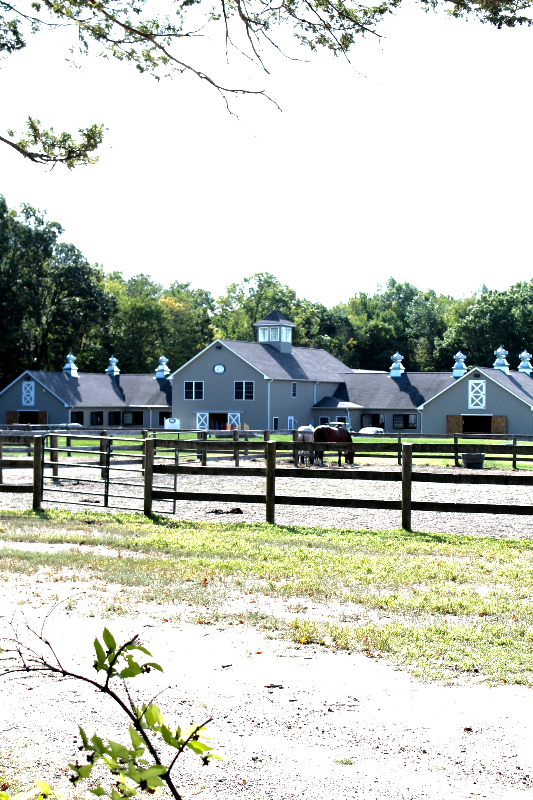
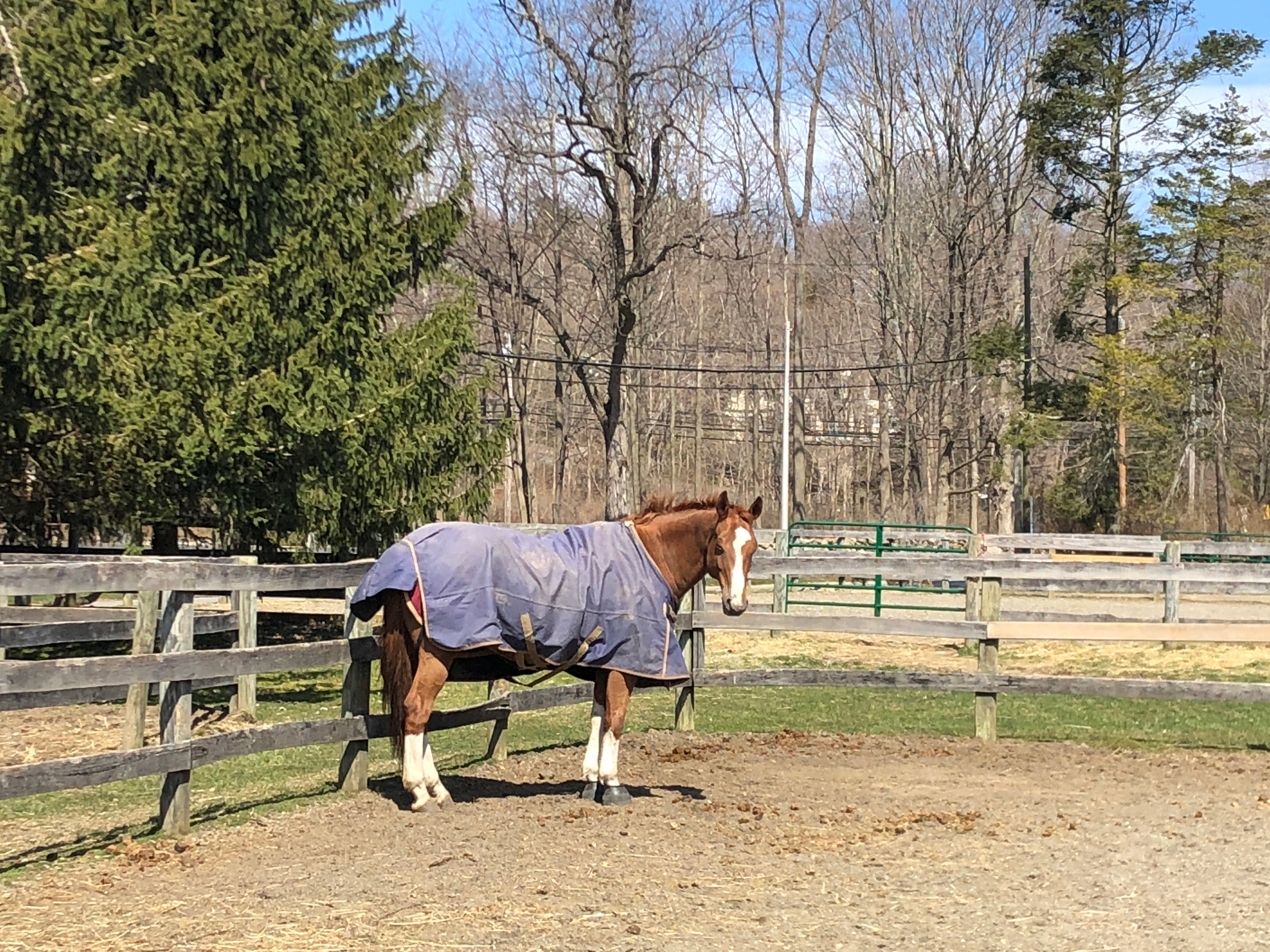
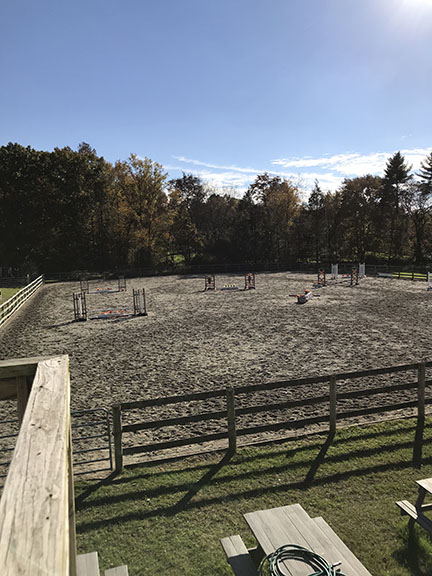
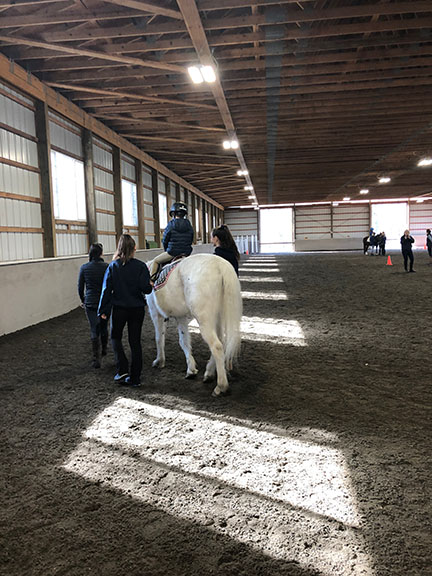
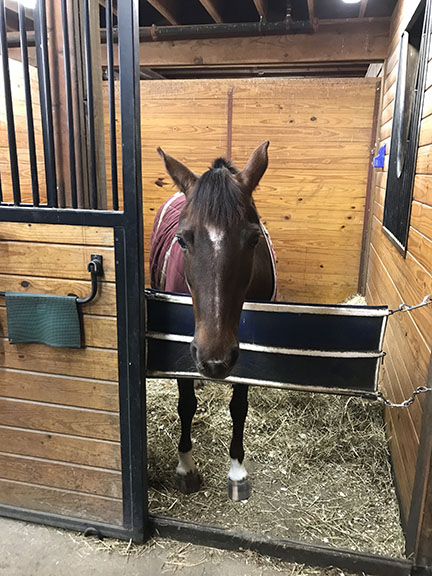
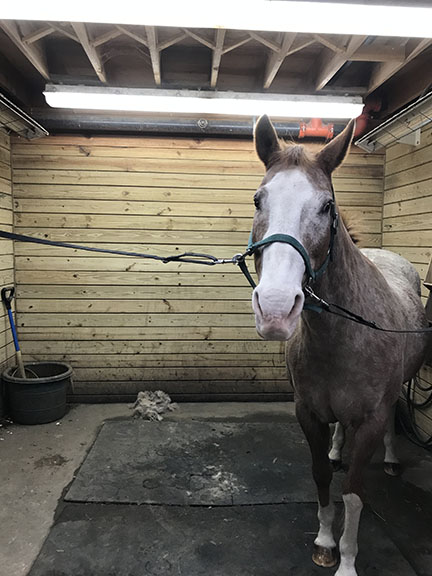
Are the organization's rules, restrictions and warnings (signage) conspicuously posted in easily accessible locations? Yes
Are the organization's emergency contacts, including veterinarian contact information, conspicuously posted in easily accessible locations? Yes
Are human and equine first aid kits easily accessible? Yes
Regarding all shelters where horses are housed including run-in sheds:
Do horses have assigned stalls in the barn/structure(s) or exclusively assigned shelter locations where they are separated from other horses with a barrier? Yes
How many hours per day, on average, are horses stalled or restricted to these sheltered exclusive shelter locations? 17+
How often are the stalls/shelters cleaned, i.e., kept in good repair and free of standing water, accumulated waste, sharp objects and debris? 6-7 Days a Week
Do all stalls/shelters allow horses to lie down, stand up and turn around and provide protection from inclement weather (wind, sleet, rain, snow and extreme temperatures)? Yes
Are stalls/shelters kept in good repair, with adequate ceiling height, and free of standing water, accumulated waste, sharp objects and debris? Yes
Are floors constructed and maintained for both good drainage and traction? Yes
Is there a ventilation and circulation system in place to allow free flow of air to control temperature, and humidity, and to prevent air stagnation? Yes
Is wiring inaccessible to horses and maintained for safety in all areas of facility? Yes
Are fire prevention/protection measures (fire alarms, extinguishers and sprinkler systems) maintained and in good working order? Yes
Is there adequate lighting to ensure safety in all areas of facility? Yes
How many hours per day, on average, are horses turned out:
Equines are out 1 to 3 hours per day
The following describes the pastures at this facility:
This facility does not have pastures where equines can graze on pasture grass
This facility has a written plan in place for pasture management, which includes guidelines for seeding, fertilizing, irrigation, mowing, dragging, harrowing, manure removal, removal of debris, the control of poisonous plants, and a schedule for cleaning
A dedicated staff person(s) is responsible for pasture management
All pastures are fenced to prevent escape or injury
Barbed wire is used for fencing
Electric fencing is used; electric wires or tape fence are visibly marked
Fencing checks, such as broken or missing planks, loose fence posts, exposed or loose nails, detached wires, etc., are done regularly
Pastures are rotated
Pastures have natural protection for equines (i.e., trees)
Pastures have man-made protection for equines (i.e., shelters)
The following describes the turnout areas other than pastures at this facility:
This facility has a written plan in place for the maintenance of turnout areas, which includes a schedule for cleaning, manure removal, and dragging
A dedicated staff person(s) is responsible for the maintenance of turnout areas
All turnout areas are fenced to prevent escape or injury
Fencing checks, such as broken or missing planks, loose fence posts, exposed or loose nails, detached wires, etc., are done regularly
This facility does not have turnout areas
Barbed wire is used for fencing
Electric fencing is used; electric wires or tape fence are visibly marked
Turnout areas have man-made protection for equines (i.e., shelters)
The following policies and procedures are in place at the facility to restrict public access and to keep horses safe:
By Appointment Only signs are posted.
No Trespassing signs are posted
Authorized Personnel Only signs are posted
Entrance gates are locked at night
The perimeter of the property is fully fenced
The property owner, staff member or caretaker lives on the premises and ensures that public access is restricted and is responsible for the security of the facility and equines
A security guard is present at night
There is a practice in place to monitor equines overnight
Hold Harmless signs are posted
Visitors are only permitted at specific times
Visitors are only permitted in specific areas
The property is fitted with motion lights
The property is fitted with a security system monitored by police or a professional service
The property is fitted with a security system that is monitored internally by staff (or the property owner)
Equine Care/Emergency Preparedness: New Canaan Mounted Troop (*Main) 2026 and 2025 This section is required.
Horse Health Care/Barn Management Records: What system is used to collect and store health/horse care records?
Notebook or equivalent (technology not utilized)
Onsite computer with cloud-based backup storage system
Our organization utilizes a software application to maintain records
Our organization would use free cloud-based barn management software if available
The following items are consistent with our feed management plan and practices:
Equines are provided with individualized feeding plans, including supplements, according to the equine's age, breed/type, condition, size, work level and any health issues, consisting of nutritious food provided in sufficient quantity and access to adequate natural forage, or be fed daily, or as recommended by the organization's veterinarian
Feed plans are determined in consultation with a veterinarian
Supplement plans are determined in consultation with a veterinarian
Equines are fed grain in individual stalls
Staff and/or volunteers are trained in proper feed measurements and protocols and observed periodically to ensure they are feeding correctly
The feed chart is centrally located and updated as needed
The area(s) where hay, feed, grain, and supplements are stored are kept clean, free of debris and chemicals, and protected from weather and other animals in rodent-proof and mold-proof containers and grain bins
Feed, supplements and hay types are clearly labeled
Water sources, i.e., buckets, troughs, automatic waterers, etc. are kept clean, free of contaminants, debris and chemicals, protected from weather and other animals, and be positioned or affixed to minimize spillage.
Medications are kept in a secure area
Equines are fed grain in groups
Is clean, potable water available at all times for all equines? Yes
Hoof Care: How often is hoof care provided for each equine? Every 4-8 weeks and when an issue arises
Dental Care: How often is dental care provided for each equine? Annually and when an issue arises
Horse checks: How often are equines visually and physically checked by personnel at the facility? Every day or 6 days a week
Our organization has the following parasite and fly/insect control protocols in place, including remedies used to control flies and insects:
Our organization follows the parasite control guidelines of our veterinarian, including fecal testing and de-worming
Fly/Insect Control Remedies:
Fly Traps and Tapes
Fly Spray Repellent
Fly Masks
Fly Sheets
Fans
The following represent the biosecurity practices in place at facility:
Our organization follows the biosecurity guidelines of our veterinarian
Sick, affected and/or quarantined equines do not have contact with other equines or other animals
The organization has a written biosecurity plan
Staff are trained in best practices related to biosecurity
Volunteers are trained in best practices related to biosecurity
A specific individual is trained and assigned to care for sick, affected and/or quarantined equines
Sick, affected and/or quarantined equines are cared for last if the caretaker must also care for healthy equines
Restricted access signs are posted at primary points of access to sick, affected and/or quarantined equines
Hand sanitizers are available at all primary points of access to sick, affected and/or quarantined equines
Footbaths are available at all primary points of access to sick, affected and/or quarantined equines
Manure and bedding from sick, affected and/or quarantined equines is removed from the facility - not put in open air piles, and not spread on pastures
Quarantine areas, such as stalls, aisle ways, paddocks, and common areas, are cleaned (and needed, disinfected) after conclusion of the quarantine.
Equipment used by sick, affected and/or quarantined equines is not shared
Equipment used by sick, affected and/or quarantined equines is cleaned of organic debris and disinfected after each use
Latex gloves, or equivalent gloves, are worn when working with sick, affected and/or quarantined equines
Trailers/vans used by sick, affected and/or quarantined equines are cleaned and disinfected after each use and cleaning takes place away from where equines are sheltered
Equines are not quarantined on arrival.
Additional information on biosecurity:
If we have a sick horse they are quarantined in their stall and do not have contact with any other horses. We have an isolation paddock, that is used if warranted.
The following represent the manure removal practices in place at facility:
Manure is stored in dumpster(s)
Manure is hauled, sold or given away
Our organization adheres to the manure management guidelines set by the state, local authorities, and/or our organization's veterinarian
Manure is piled in an area where equines are not located
Manure piles are covered
Manure piles are composted or spread on pastures
The following steps are taken to help staff and volunteers readily identify each horse on the property:
Equines are assigned the same exclusive stall/shelter location each day
Name plates are located on the stall/shelter location
Photos are located on the stall/shelter location
A notebook or binder with photos and information on each equine is easily accessible
A map/diagram is posted showing the location of each equine with equine names and photos
Equine photos and profiles are available on the website
Staff/volunteers are provided training on conformation, markings, colors, and breeds
Team leaders work with new staff/volunteers until they are able to identify the equines
Equines wear halters with nametags
Staff and volunteers are provided with an information packet with equine profiles, including photos and detailed descriptions
Our organization has the following policies and procedures in place pertaining to tack, apparel and equipment:
All equines have specifically assigned apparel, equipment and tack (saddles/bridles if ridden) that is not shared
Saddle pads are shared
Turnout apparel is shared
Blankets, sheets and turn out apparel are fitted and utilized for each equine appropriate to the equine's needs and the weather conditions
Blankets, sheets and turn out apparel are cleaned regularly as needed
Riding Tack is always cleaned after each use
Riding Tack is inspected for overall working condition before each use by trained personnel
Riding Tack is assessed for fit before each use by trained personnel
Riding Tack is assessed for fit by trained personnel when an equine's body condition changes
Riding Tack is assessed for fit by trained personnel when an equine's disposition changes
This facility enlists the services of a professional saddle fitter at least once a year
Assigned riding tack is clearly labeled
Riding Tack is stored in a climate-controlled location
Helmets are shared
Helmets are cleaned/disinfected after each use
Helmets are replaced after a fall
Helmets are replaced at least every five years.
Saddles are shared
Bridles are shared
Bits are shared
Blankets are shared
Sheets are shared
Halters are shared
Riding Tack is always cleaned at least weekly
Riding Tack is cleaned only when needed
No equines are ridden; saddles, bridles, etc. not applicable.
Emergency Preparedness: New Canaan Mounted Troop: *Main This section is required.
The following plans, policies, and procedures are in place at the facility to handle emergencies and address weather related issues, fire safety procedures, and/or any additional hazardous scenarios the facility could potentially experience:
Emergency procedures are posted prominently
The facility maintains at least two weeks of hay, feed, shavings and medications
The facility collects and maintains medical information from staff, volunteers, and clients
The facility maintains appropriate liability and/or workers' compensation insurance
The organization has a written emergency preparedness/safety plan (EPP)
The facility owns or has access to a generator
Local fire department and/or the state's emergency planning department procedures
Medical emergencies for clients, staff, and volunteers
Medical emergencies for equines
Evacuation plans
Power outages
Fire
Protocols to notify emergency personnel
Building/facility exit plans
Natural Disasters - thunderstorm, hurricanes, earthquakes, tornados, etc
Terrorist attacks
The facility follows the specific procedures to help PREVENT emergency situations:
Smoking is strictly prohibited
NO SMOKING signs are posted prominently
Permanent or temporary structures where equines are stalled are kept free of dust, cobwebs, trash, cleaning rags, and other flammable items
Aisles and doorways are kept clear
Hay is stored away from permanent or temporary structures where equines are stalled
Heaters with automatic shutoff settings are used
How often are the following checked or performed?
Fire Extinguishers are checked: Annually
Smoke detectors are checked: Annually
Fence lines are checked: Daily
Turnout Areas are checked: Daily
Sprinkler systems are checked: Quarterly
Fire drills are conducted: Annually
Review of safety protocols with staff are conducted: Annually
Review of safety protocols with volunteers are conducted: Quarterly
The Emergency Preparedness Plan is reviewed and updated: Annually
Equine Transportation: 5= Onsite: 0 (0 + 0) + Offsite: 5
2-horse van/trailer with truck:
1 Access offsite;
3-horse van/trailer with truck:
1 Access offsite;
4-horse van/trailer with truck:
1 Access offsite;
6-horse van/trailer with truck:
1 Access offsite;
8-horse van/trailer with truck:
1 Access offsite;
© Copyright 2018 EQUUS Foundation 72 3.00